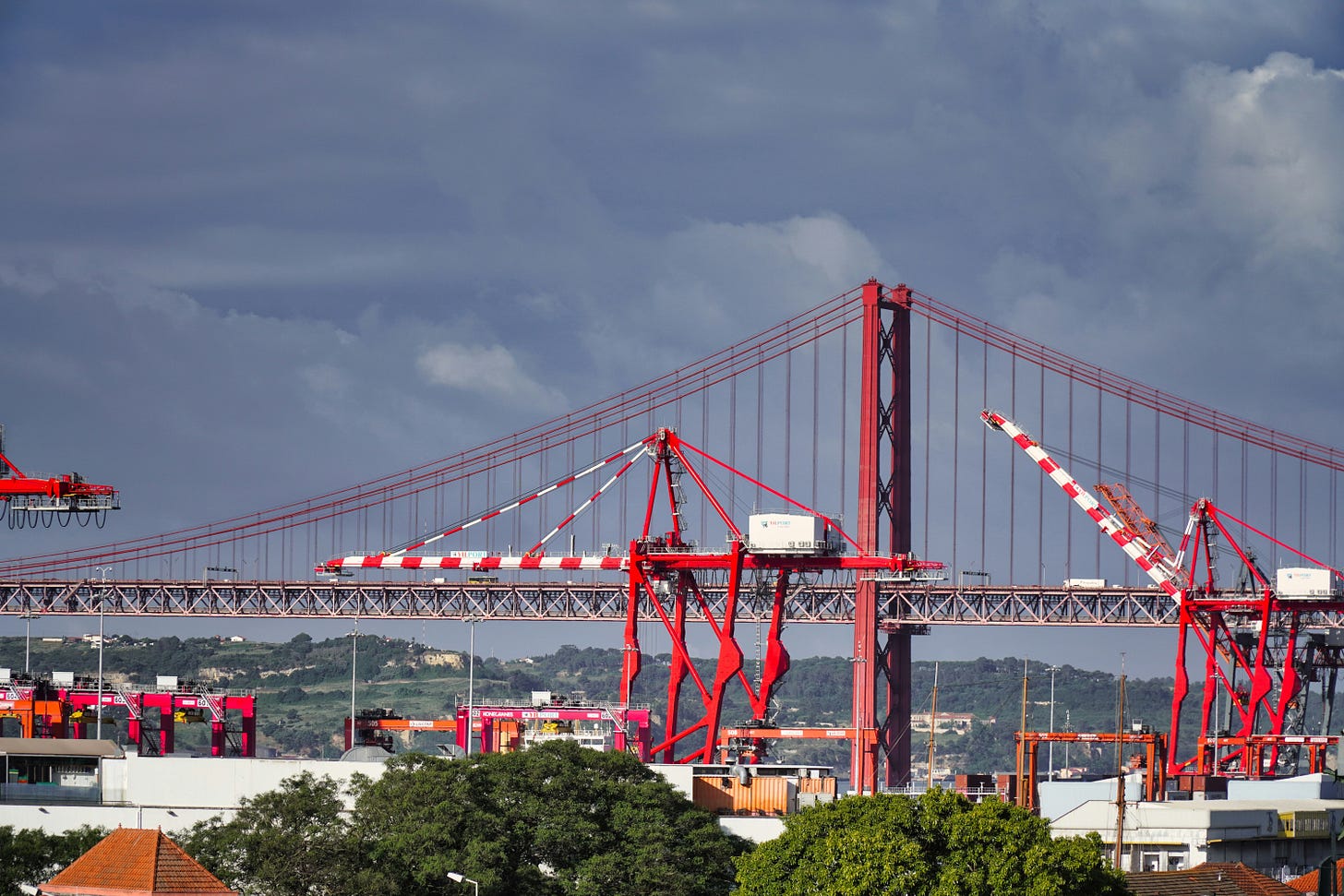Nearly half of Portuguese exports escape Trump’s tariffs
Although wine exports grew 4.46% in 2024, reaching €965.8 million, the €102.1 million worth of wine sold to the U.S. is now in jeopardy.

Around 45% of Portuguese exports to the United States will manage to avoid the latest round of tariffs imposed under the trade policies of President Donald Trump, according to data from Portugal’s Agency for Investment and Foreign Trade (AICEP).
In 2024, Portugal exported goods worth €5.3 billion to the U.S.
Of that total, €2.37 billion — or 44.5% — were not affected by the 10% tariff rate recently reinstated by Trump as part of his protectionist agenda.
Key items that avoided the new levies include pharmaceuticals and refined petroleum products, with the latter largely exported by Galp Energia, Portugal’s main energy company.
Despite this buffer, uncertainty looms.
AICEP warns that the U.S. tariff code only aligns with the EU’s to six digits, meaning there may be overestimations in the classification of exempted goods.
Furthermore, Trump has threatened to revoke exemptions on pharmaceuticals, raising concerns in one of Portugal’s top export sectors.
Last year, pharmaceutical exports alone accounted for €1.17 billion in sales to the U.S.
Refined petroleum products - described in customs data as “light oils and petroleum preparations” - also remained untouched by the tariff hikes, totaling exports of €1.03 billion.
A Fragmented Impact Across Industries
While some sectors remain protected, others are feeling the brunt. The list of exempted items is long and eclectic, including brass tubes, wood, tungsten, and electronic integrated circuits, based on exceptions unilaterally defined by the U.S. administration.
At the company level, 15% of Portuguese firms exporting to the U.S. rely exclusively on that market.
Out of 4,255 exporters, 624 companies depend entirely on U.S. trade, accounting for €968 million - or 18% of total exports. Another 645 companies derive between 50% and 99% of their foreign sales from the U.S., worth over €1 billion.
The sectors they operate in remain unspecified.
Sectors Most at Risk
Data from Banco de Portugal reveals the sectors most exposed to U.S. trade policy changes. Approximately:
12% of textile manufacturers,
11.5% of producers of non-metallic mineral products (e.g., glass and porcelain),
and 10% of the beverage industry
rely on the U.S. for over 10% of their total sales.
In 2023, companies with high U.S. exposure made up 76% of textile exports to the U.S., 82% in mineral products, and 34% in beverages.
Since 2015, when Portugal’s U.S. exports surpassed those to Angola, the United States has become the largest non-European buyer of Portuguese goods, ranking as the fourth-largest export market overall.
In 2024, Portugal recorded a €2.9 billion trade surplus with the U.S., the largest among its trade partners.
Wine Sector Feels the Squeeze
One of the sectors already experiencing the effects of Trump’s tariffs is wine.
According to Paulo Amorim, president of ANCEVE (National Association of Wine and Spirits Traders and Exporters), U.S. distributors have suspended orders of Portuguese and European wines altogether.
Although wine exports grew 4.46% in 2024, reaching €965.8 million, the €102.1 million worth of wine sold to the U.S. is now in jeopardy.
Amorim warns that the supply chain has ground to a halt due to uncertainty, calling the situation a “terrible injustice” that could disproportionately hurt wine producers.
To mitigate the damage, Amorim advocates for a “new Porter plan” referring to Michael Porter’s model for enhancing industry competitiveness.
The proposal follows a high-level meeting with government ministers and 16 industry associations to address the fallout from the new U.S. tariffs.



